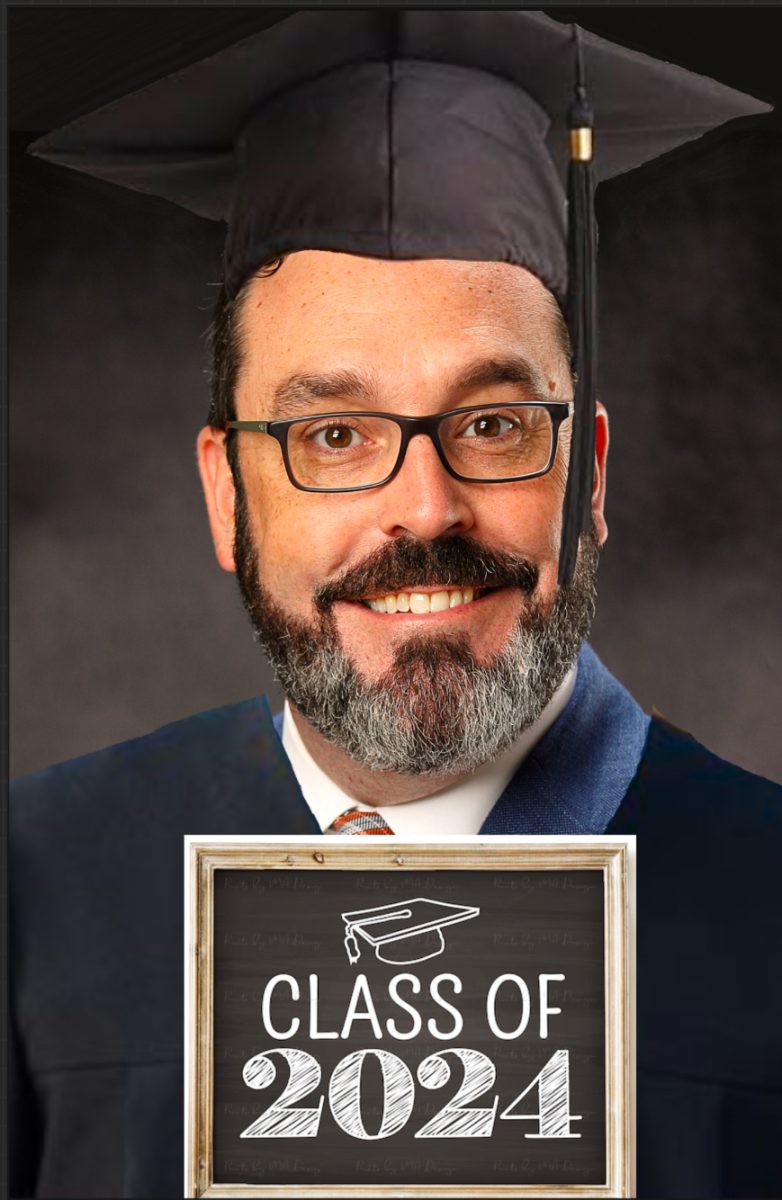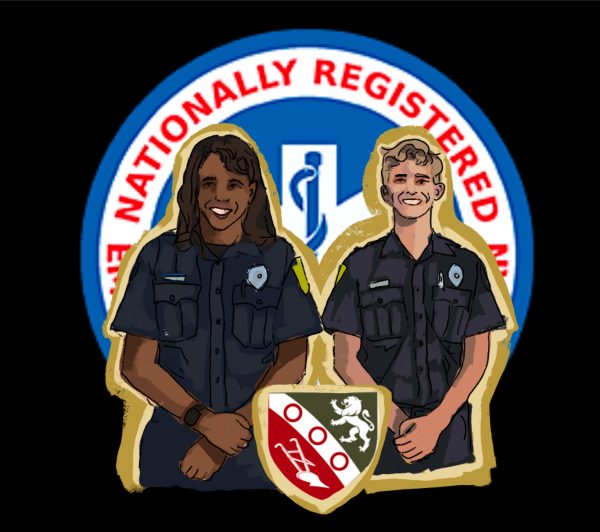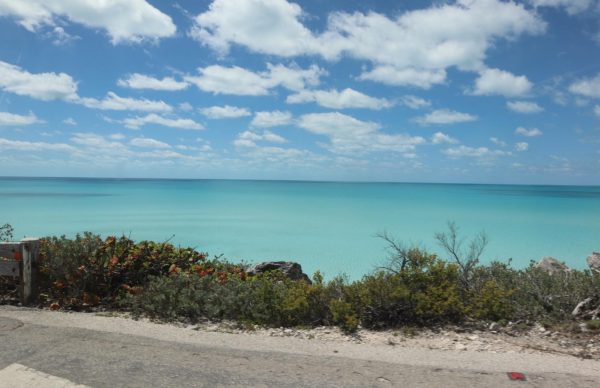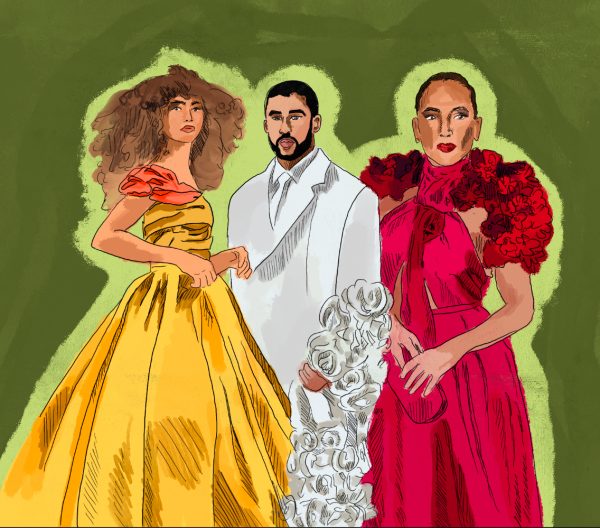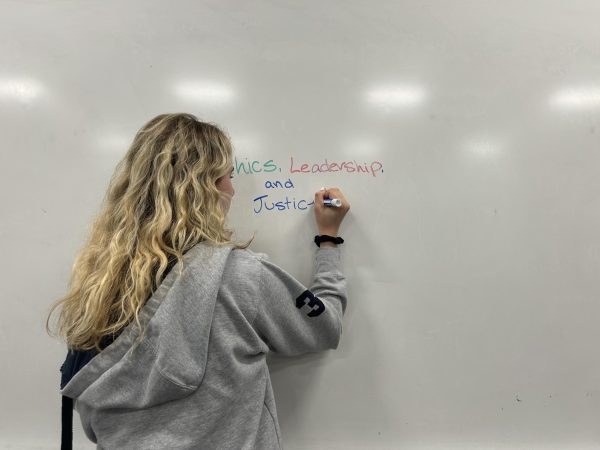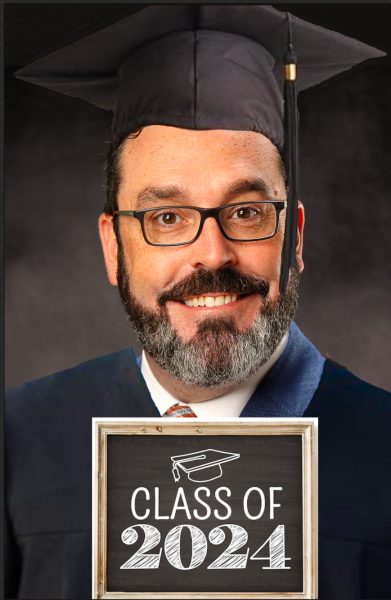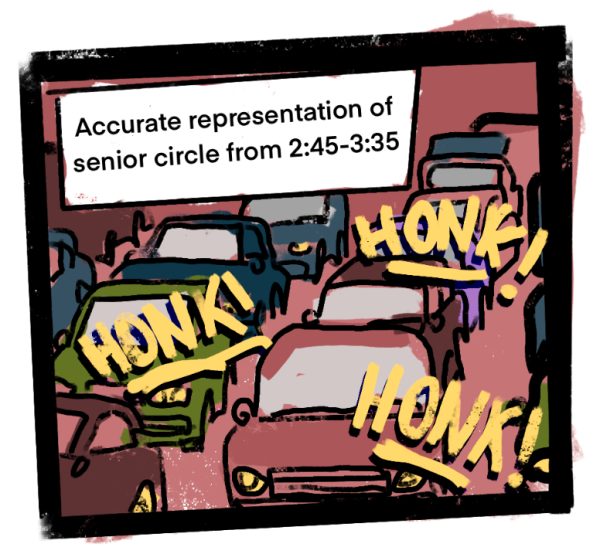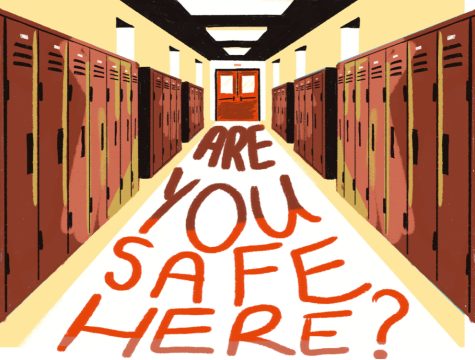Switching Up: Faculty Members who Changed Career Paths
May 12, 2023
High School students often feel pressure to know exactly what they are going to do with their lives “when they grow up.” Most are familiar with the uncomfortable feeling that wells up when someone asks, “What do you want to do?” At MBS, however, students can rest assured knowing that the decisions they make about their futures now are not set in stone. Some of the MBS faculty did not start out knowing they wanted to be teachers; in fact, many teachers pursued alternate paths before entering the world of education.
Dr. Marina Milinkovic, of the Upper School Science Department, has been surrounded by educators from a young age as both of her parents were teachers. Instead of following in her parents’ footsteps, Dr. Milinkovic became a medical doctor. In Serbia, she worked as a physician, including during the Yugoslav Wars in the ‘90s. However, upon moving to the United States and discovering that she’d have to repeat her residency to be a practicing doctor, she looked to other options. Dr. Milinkovic started working for pharmaceutical companies such as Novartis, where she researched targeted cancer therapies and worked as Medical Director for Clinical Trials of Diabetes. Working as a teacher has given Dr. Milinkovic the opportunity to focus on her love of science while also embracing other aspects of her life.
Though she found the work rewarding and enjoyed meeting medical professionals from all over, she wanted more time for her family. Her next-door neighbor was the MBS Science Department Chair at the time and invited her to visit the school. And so, Dr. Milinkovic began her third career. She explains that one of the things she enjoys most about teaching is the ability to “bring to the students extensive experience on how to approach research and lab work.” She said, the “conversations [about] art, books, cultural events, travel” that she was able to have with her new colleagues has also been one of her favorite parts of the job. Dr. Milinkovic is well-versed in the arts; while in medical school, she was also in music school for the accordion, which she played competitively. Working as a teacher has given Dr. Milinkovic the opportunity to focus on her love of science while also embracing other aspects of her life.
Brian Maher, of the Upper School History Department, worked as both a clerk for a judge and then an attorney for 10 years before coming to MBS. He said, “I just really liked [being a lawyer] because of its versatility, and also the way it makes you think.” Despite his appreciation for the growth the field offered him, Maher eventually chose to leave because of the time required outside of the office to practice law. To do right by their clients, lawyers often spend most of their time dedicated to their work, due to the high expectations surrounding them. Lawyers are, after all, the only non-governmental career embedded in the United States Constitution. Feeling that he didn’t have enough time for his family, Maher chose to pursue a different path.
With a political science background tracing back to college, there were many options for Maher. Teaching gives him the opportunity not only to impart the knowledge he’s gained to the next generation, but also to help guide them through their lives. In addition, it offered him the opportunity to participate in sports and coaching. Maher’s background playing Division I tennis at Villanova University, and then becoming a professional tennis player makes him especially qualified to work with MBS’s many student athletes. “If I wasn’t in education, I might have even become a tennis coach somewhere,” he says. MBS offered Maher the opportunity not only to embrace coaching, but also to put his years of hard-earned law knowledge to good use.
Ricky Kamil, of the Upper School History Department, previously worked in international banking in a wide range of places ranging from New York City to Brussels, Belgium. Kamil was inspired to enter this field by his older sister. Seeing how exciting her work was, he considered the career and then decided that he was well-suited for the job. He said, “When I graduated from college, I had studied economics and international relations. I thought banking was the perfect kind of work that would bridge my interests, and it would be fun.” He enjoyed working with different kinds of people, and his work required a lot of traveling, which he enjoyed.
After about twenty years in banking, Kamil experienced numerous mergers and changes in his workplace, ultimately deciding that he wanted to do something different. He realized one of the things he’d enjoyed most about banking was teaching his clients. When Kamil moved toward education, he didn’t jump in all at once; instead, he did it in steps. After 9/11, he came to the conclusion that people didn’t understand the Middle East and were prone to making broad assumptions about it. He volunteered to teach classes on subjects such as ancient Egyptian history and banking. Kamil wanted to do something that he felt was important, stating, “[I wanted to] help people understand how diverse the Middle East is and how wrong it was to extrapolate and stereotype.” He continues to stress the importance of being “flexible and open-minded, because the world is changing all the time” in his classes to this day.
MBS has proven to be a great experience with excellent opportunities, where they feel freer to pursue different areas they want to focus on.
Despite the vast differences in their career paths, Dr. Milinkovic, Mr. Maher, and Mr. Kamil have something in common – their love for MBS and its community. MBS has proven to be a great experience with excellent opportunities, where they feel freer to pursue different areas they want to focus on. All of them agree that it’s important not to feel locked in. Though it often seems like the first job someone does is what they’ll be stuck doing forever, these teachers are living proof that it’s not true. What matters most is that someone truly loves what they do and remains open to the possibilities of pursuing other options if the first choice doesn’t pan out.


